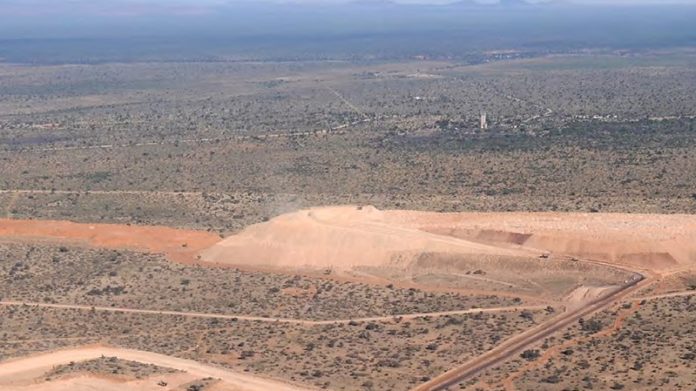
THE lack of minerals exploration in South Africa’s mining sector goes back to its corporatisation more than 60 years ago following the creation of Anglo American and its counterpart, General Mining.
In those days, mining houses did their prospecting in-house where the parent company charged service management fees to the underlying businesses, some of them listed. Apart from its inefficiencies, the system resulted in an investment tradition that rewarded the mighty and lost comfort in the two-bit entrepreneur; ironic, given the manner of Johannesburg’s own mining town origins.
Errol Smart, a South African who has worked in the Australian minerals development sector, is convinced the time is ripe to change history. It would be apposite: President Cyril Ramaphosa’s economic recovery plan is crying out for the kind of vigour Smart and other miners say they can bring, especially in the Northern Cape province.
“Geologically, I can tell you, having gone around the world and looked at terrains, the Northern Cape is an absolute dripping roast,” said Smart at the Joburg Indaba, a mining conference which this year was held virtually.
Said Smart: “Just on our 3,000 square kilometres of mining rights and prospecting rights alone, we have got 23 commodities of interest. It has everything from uranium and nickel and cobalt to platinum [group metals] and gold, and all the base metals you can dream of. There are very few places in the world where you can find a terrain like that”.
What’s needed is political certainty, regulatory liberalisation, and an online minerals rights registration system that works properly and isn’t victim to corruption, previously endemic in the Department of Minerals & Energy, according to mining sources.
With a mining cadastre in place, and the adoption of tax incentives specific to minerals exploration, such as flow-through shares currently being studied by mines minister, Gwede Mantashe, minerals exploration can be transformative in rural landscapes where investment and employment is most needed, said Smart.
Glen McGavigan, executive head of technical and projects at Kumba Iron Ore, a company controlled by Anglo American, said the surface had barely been scratched in terms of Northern Cape prospectivity, literally.
Given the lack of exploration activity in South Africa over the last 20 years, there was an opportunity to apply new technology to old prospects.
In July, the company approved the R7bn Kapstevel extension of Kolomela, a mining deposit which Kumba first found in the Fifties, said McGavigan. “The Northern Cape is under-explored and even the area we operate in,” he said. Other exploration targets have been discovered by Kumba.
“Because we had these great tier one assets, we didn’t need to look. But now we all need to look again. We had pre-conceived ideas about the geology.”
New technology led to the development of the $400m Gamsberg zinc project by Vedanta Resources near the Northern Cape’s Aggeneys, even though the project had been picked over and rejected for years by successive owners, first Gold Fields of SA and then Anglo.
Laxman Shekhawat, business head of Vedanta Zinc International, said a further expansion of Gamsberg and a new zinc smelter – helping to fulfil the South African government’s long-held dream of industrial beneficiation – is planned, but the green light for the expansion project is waiting on transport capacity improvements from Transnet.
This is the other major bottleneck standing in the way of the country’s exploration sector. Eskom, with its compound tariff increases of more than 50% over three years, also casts its shadow over the sector.
“At the current rate of mining, Gamsberg will mine for more than 100 years. This has to be speeded up because time is very important in this,” said Laxman. “In the long-term, we want to look at building a steel-making hub in the Northern Cape.”
“I want to speak to Laxmann about what we can do on base metals together in the region,” said Smart. “Equally, I want to speak to African Rainbow Minerals about its smelting technology, and I want to be speaking to Kumba about how we can cooperate on SLPs (social and labour plans) and training.
“Exploration will play a leadership role. It’s not a small difference but an absolute ground moving difference.”











